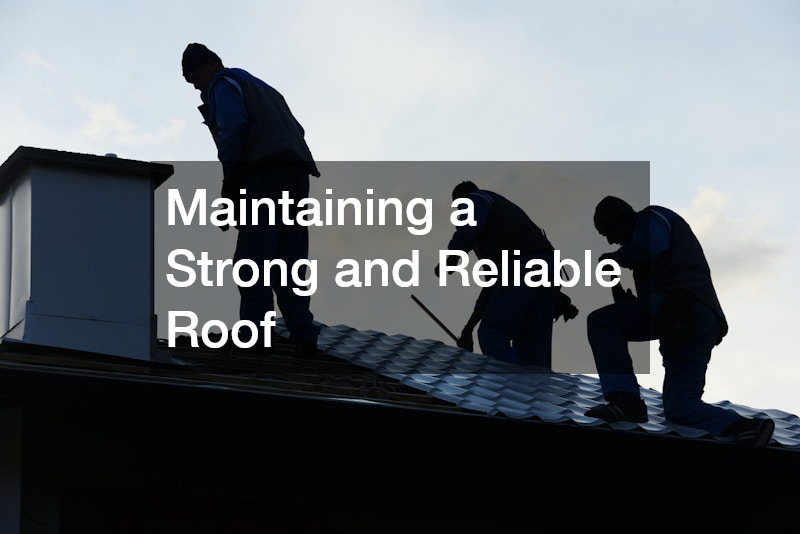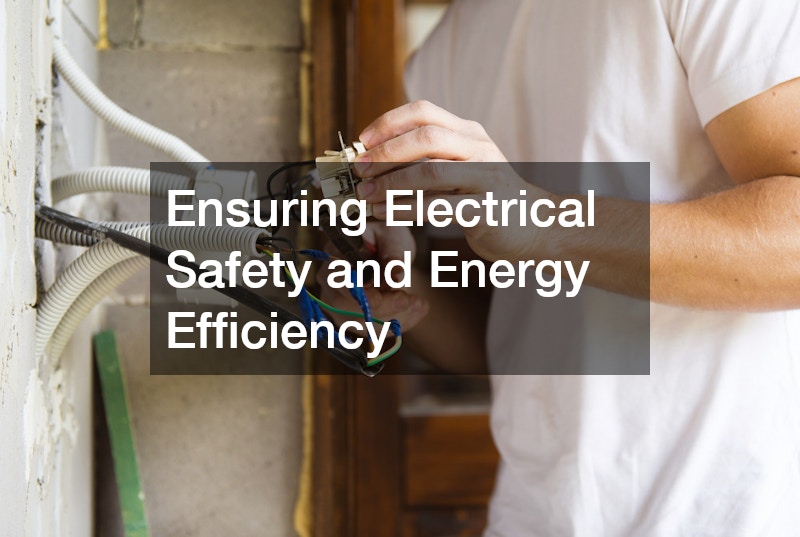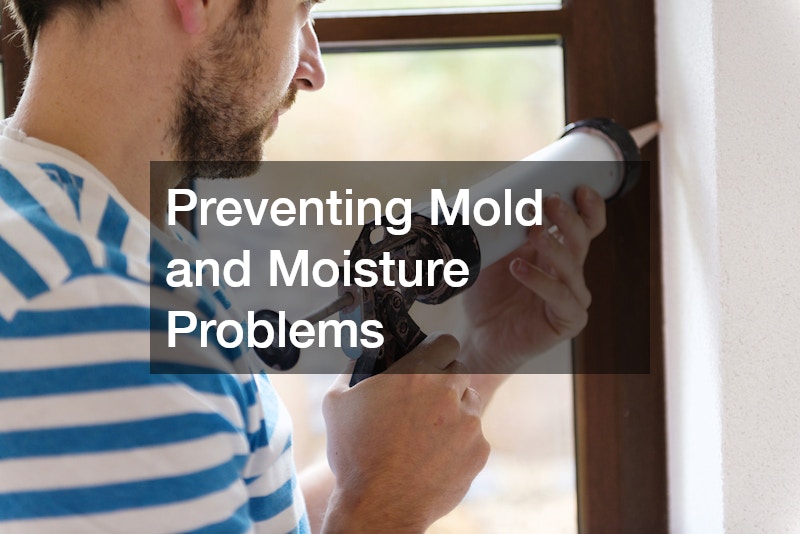Owning a home is one of life’s most rewarding investments, but it also comes with ongoing responsibilities. Every homeowner must stay proactive to preserve the property’s value, functionality, and safety. Whether you live in a new build or a decades-old house, regular upkeep prevents minor issues from turning into costly repairs. From checking the integrity of your roof and plumbing to safeguarding against hidden threats like moisture or pests, staying on top of routine maintenance can save you thousands over time.
The right approach isn’t just about fixing problems—it’s about anticipating them before they arise. Understanding the condition of your home’s core systems allows you to plan repairs and upgrades strategically rather than reactively. When you commit to steady, organized care, you’re not only protecting your financial investment but also creating a healthier and more comfortable environment for your family. Below are some of the most effective home maintenance tips to keep your property in excellent condition year-round.
Protecting Your Home from Pests and Structural Damage
When it comes to long-term property health, few things are as threatening as wood destroying insects. Termites, carpenter ants, and powderpost beetles can silently eat away at the structural integrity of your home before you even realize it. These insects thrive in damp or decaying wood, making basements, crawl spaces, and decks particularly vulnerable. One of the most valuable home maintenance tips for prevention is to keep wood surfaces dry and well-ventilated. Sealing cracks in the foundation, storing firewood away from your house, and ensuring that gutters divert water properly can drastically reduce the risk.
Beyond prevention, scheduling an annual inspection by a trusted termite inspection company is a wise investment. Professionals can identify early signs of infestation—such as hollow-sounding wood, mud tubes, or frass (fine sawdust)—before serious damage occurs. If any issues are found, treatment should be immediate to prevent spread throughout the structure.
Homeowners should also check exterior wooden components like fences, porches, and window trims. Repainting or resealing exposed areas not only enhances curb appeal but creates a barrier against moisture that attracts pests. Keeping mulch or soil at least six inches below siding levels helps deter insects as well. Adding gravel borders or non-organic ground cover around the home’s perimeter can also reduce nesting areas. Combined with consistent vigilance, these proactive measures offer an effective defense against one of the most common home maintenance challenges.

Maintaining a Strong and Reliable Roof
The roof is one of the most important protective elements of any home, shielding the interior from rain, wind, and sun exposure. Over time, however, even the best materials degrade. Regular inspections and timely care can prevent leaks, water damage, and insulation issues. Hiring a professional for a roof maintenance service at least once a year ensures that shingles, flashing, and seals are intact. Professionals can spot small issues—such as curling shingles or damaged underlayment—before they lead to costly interior repairs.
A home roof inspection should be scheduled after major storms, especially those involving high winds or hail. Debris accumulation in gutters or valleys can trap water, leading to rot or mold. Clearing gutters, trimming overhanging branches, and checking attic ventilation all contribute to roof longevity. One of the most practical home maintenance tips for homeowners is to keep a checklist for seasonal inspections—spring and fall are ideal times for preventive maintenance.
If your home has an older roof nearing its lifespan, consider upgrading to modern materials with better durability and energy efficiency. Reflective coatings and improved underlayment can enhance insulation while reducing utility costs. For homes in colder climates, adding snow guards or heating cables helps prevent ice dams. Remember that roofing issues often start small but escalate quickly if ignored. With consistent oversight and timely repairs, your roof can provide decades of dependable protection for your property.
Keeping Your Heating and Cooling Systems Efficient
Your home’s comfort depends heavily on the performance of its heating and cooling systems. Scheduling professional care through an hvac repair service ensures that furnaces, air conditioners, and ventilation systems run efficiently throughout the year. Neglecting maintenance can lead to higher energy bills, uneven temperatures, and unexpected breakdowns.
Among the most essential home maintenance tips is to change filters regularly—ideally every one to three months depending on usage and household size. Dirty filters restrict airflow, making your HVAC system work harder and shortening its lifespan. Annual tune-ups allow technicians to check refrigerant levels, clean coils, inspect wiring, and verify that all components are operating safely.
Beyond mechanical upkeep, homeowners should also focus on insulation and air sealing. Drafts around windows, doors, or ductwork can cause the system to overcompensate, leading to inefficiencies. Smart thermostats are another valuable upgrade, providing precise temperature control and reducing unnecessary energy consumption.
Seasonal maintenance extends to heating repair services as well. Before winter arrives, ensure that the furnace and boiler are inspected for safety and reliability. Proper servicing not only enhances performance but also prevents carbon monoxide leaks, which can pose serious health risks. Having your ducts professionally cleaned every few years also improves air quality and system performance. By maintaining your HVAC and heating systems diligently, you create a comfortable living environment while protecting one of your home’s most significant investments.
Ensuring Electrical Safety and Energy Efficiency
Electrical systems are often overlooked until something goes wrong, but they’re critical for both safety and functionality. A local electrical inspection can identify outdated wiring, overloaded circuits, or hidden faults that could lead to fires or power failures. Licensed electricians use advanced diagnostic tools to test outlets, breakers, and grounding systems, ensuring your home meets current safety standards.
Among the most valuable home maintenance tips in this area is to avoid overloading outlets and to replace damaged cords immediately. Homes built decades ago may not be equipped to handle the demands of today’s appliances and electronics. If you experience frequent breaker trips or flickering lights, it’s time to schedule a professional evaluation.
Upgrading to energy-efficient fixtures and LED lighting can also reduce electrical load and lower utility costs. Installing whole-home surge protection is another smart measure, especially in regions prone to lightning storms or grid fluctuations. For those considering smart-home automation, consulting an electrician beforehand ensures the added devices won’t strain existing circuits. If you plan any major renovation or appliance installation, an inspection before and after the project ensures the system remains compliant and safe.
Electrical upkeep isn’t only about preventing hazards—it’s about optimizing your home for modern living. Consistent evaluations can help you catch small inefficiencies that might otherwise lead to major problems down the road.
Addressing Plumbing and Drainage Concerns
Plumbing issues can escalate quickly if left unchecked, causing significant water damage or health risks. Keeping drains clear and ensuring your pipes remain in good condition is essential for any homeowner. A local drain cleaning service can remove buildup caused by grease, hair, and mineral deposits that accumulate over time. Routine cleaning prevents clogs, backups, and unpleasant odors.
For emergencies, it’s wise to have contact information for 24 hour plumber. Burst pipes or sudden leaks can occur without warning, and immediate response minimizes damage to floors, walls, and personal belongings. Homeowners should also familiarize themselves with the location of the main water shut-off valve to act fast during an emergency.
One of the best home maintenance tips related to plumbing is to monitor water pressure regularly. Excessively high pressure can stress pipes and fixtures, while low pressure may indicate a leak or blockage. Additionally, check for moisture under sinks, around toilets, and near water heaters. Early detection of even minor leaks can prevent mold growth and structural issues.
If your property has an older plumbing system, consider upgrading to modern PEX or copper piping. These materials resist corrosion and have longer lifespans compared to outdated galvanized steel. Installing water alarms or smart leak detectors adds another layer of protection. Regular inspection, preventive cleaning, and emergency readiness ensure your home’s plumbing remains reliable year-round.
Preventing Mold and Moisture Problems
Moisture control plays a vital role in preserving your home’s structural integrity and indoor air quality. Areas with poor ventilation—like basements, bathrooms, and attics—are breeding grounds for mold. Professional mold remediation services can identify hidden growth behind walls or under flooring and remove it safely. Left untreated, mold can lead to respiratory issues and even compromise wooden framing.
One of the most practical home maintenance tips to prevent mold is to manage humidity levels. Dehumidifiers and exhaust fans can keep indoor air dry, while regular HVAC maintenance ensures proper airflow. Check for leaks in roofs, windows, or plumbing systems, as moisture intrusion often begins in small, unnoticed spots.
Insulation also plays a key role in preventing condensation. Properly sealed windows and doors minimize temperature fluctuations that cause dampness. If you notice a musty smell or discoloration on walls, act quickly to identify the source.
Basements and crawl spaces are particularly vulnerable. Installing vapor barriers and maintaining proper grading outside the home help keep water from seeping in. Regular inspection of these areas, combined with quick action on any water intrusion, keeps your living environment healthy and your property safe from long-term moisture damage. Adding moisture sensors or smart monitors can also alert you to potential issues before they become major repairs.
Seasonal Inspections for Whole-Home Health
Consistent seasonal inspections are the backbone of any successful maintenance routine. Each season brings different challenges—from freezing temperatures in winter to heavy rains in spring—and requires proactive care. A structured checklist ensures that no area of your home goes overlooked.
Spring is ideal for inspecting gutters, downspouts, and foundation drainage systems to ensure that melting snow and rainwater flow away from the house. It’s also the perfect time to schedule exterior painting or sealing projects before the heat of summer.
Summer maintenance often focuses on landscaping, outdoor decks, and irrigation systems. Trim trees away from the house to prevent damage during storms, and make sure that sprinkler heads aren’t spraying onto the foundation. Checking for pest nests during this season also helps you catch early infestations before fall arrives.
Fall is the time to prepare for colder weather. Have heating systems checked through professional heating repair services to ensure they operate efficiently. Clean chimneys, test smoke detectors, and reverse ceiling fans for optimal heat circulation.
Finally, winter maintenance should include checking for ice dams, ensuring that pipes are insulated, and verifying that snow loads do not exceed roof limits. Keeping a year-round calendar of tasks ensures that your property remains in peak condition through all weather changes. A simple maintenance binder or digital tracker can help homeowners stay consistent, organized, and proactive throughout the year.

The Importance of Professional Services and Routine Care
While many maintenance tasks can be handled independently, certain aspects require professional expertise. Partnering with qualified specialists for inspections and repairs ensures safety, accuracy, and compliance with local regulations. For example, a termite inspection company provides insights that even the most diligent homeowner may overlook. Similarly, roofers, electricians, and plumbers bring specialized knowledge that enhances overall property care.
Among the most important home maintenance tips is to treat preventive service as an investment rather than an expense. Regular upkeep saves money by reducing emergency calls and extending the lifespan of your home’s systems. Maintaining detailed records of service visits, upgrades, and repairs can also increase your property’s value during resale.
Communication between homeowners and service providers is crucial. Ask questions, request reports, and follow up on recommendations. Establishing relationships with local professionals ensures quick response times when issues arise.
Lastly, remember that maintenance isn’t just about the physical structure—it’s about peace of mind. A well-cared-for home provides comfort, safety, and stability, allowing you to focus on the joys of everyday living rather than constant repairs.
Building a Maintenance Mindset
Keeping a home in top shape requires both consistency and awareness. It’s not enough to react to problems after they appear; successful homeowners anticipate issues before they escalate. By implementing these home maintenance tips and combining them with regular professional inspections, you ensure that every component—from the roof to the foundation—remains in reliable condition.
Maintaining a home is a long-term commitment, but one that pays off through lower repair costs, better energy efficiency, and increased property value. Whether you’re scheduling a routine roof maintenance service, arranging an hvac repair service, or hiring a local drain cleaning service to prevent plumbing clogs, each step contributes to a safer, stronger, and more comfortable living space.
Staying proactive in every season, protecting against pests, ensuring proper ventilation, and maintaining critical systems all form part of a comprehensive care strategy. When combined, these approaches create a home that not only stands the test of time but continues to provide security and comfort for years to come.





